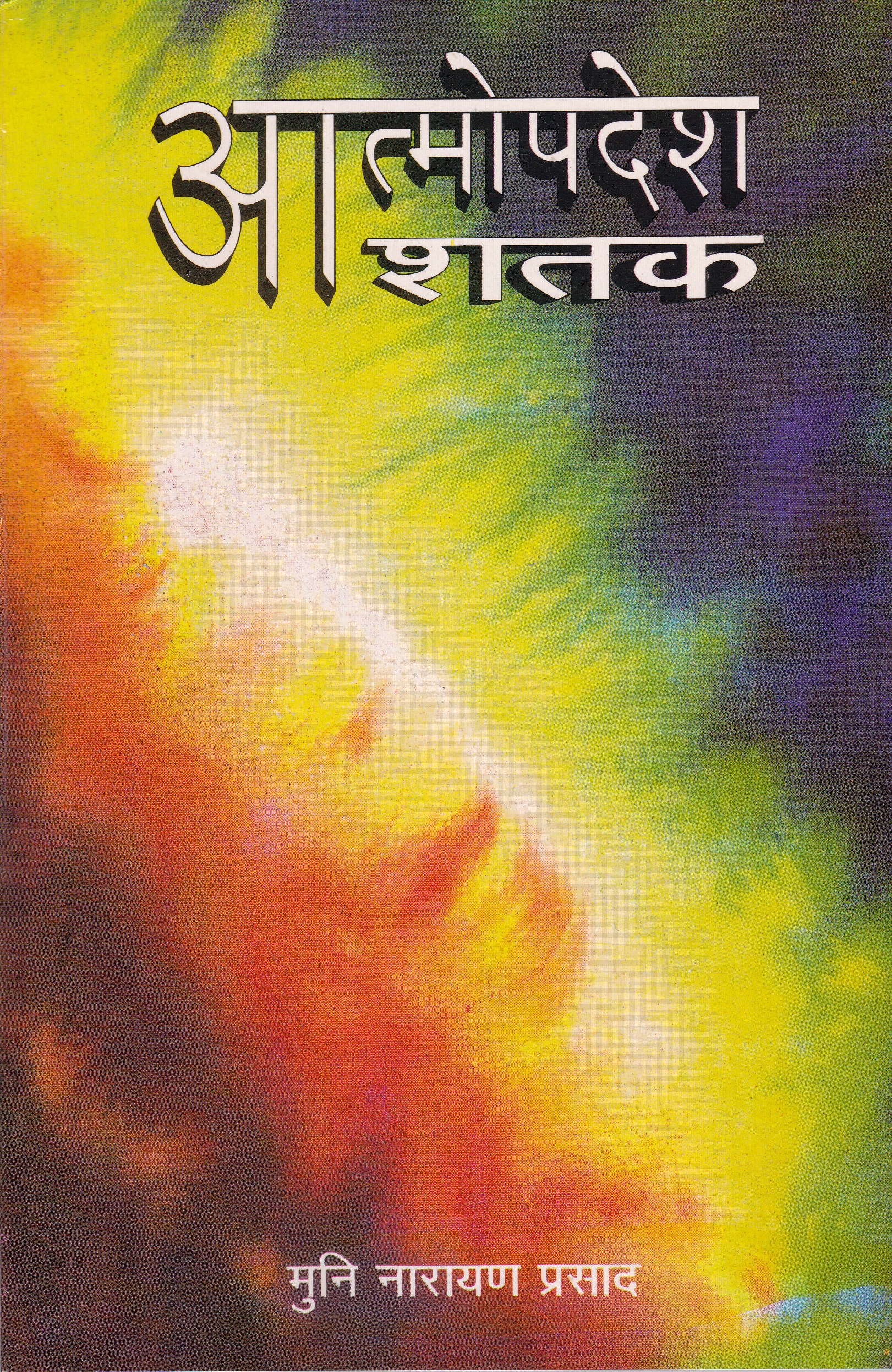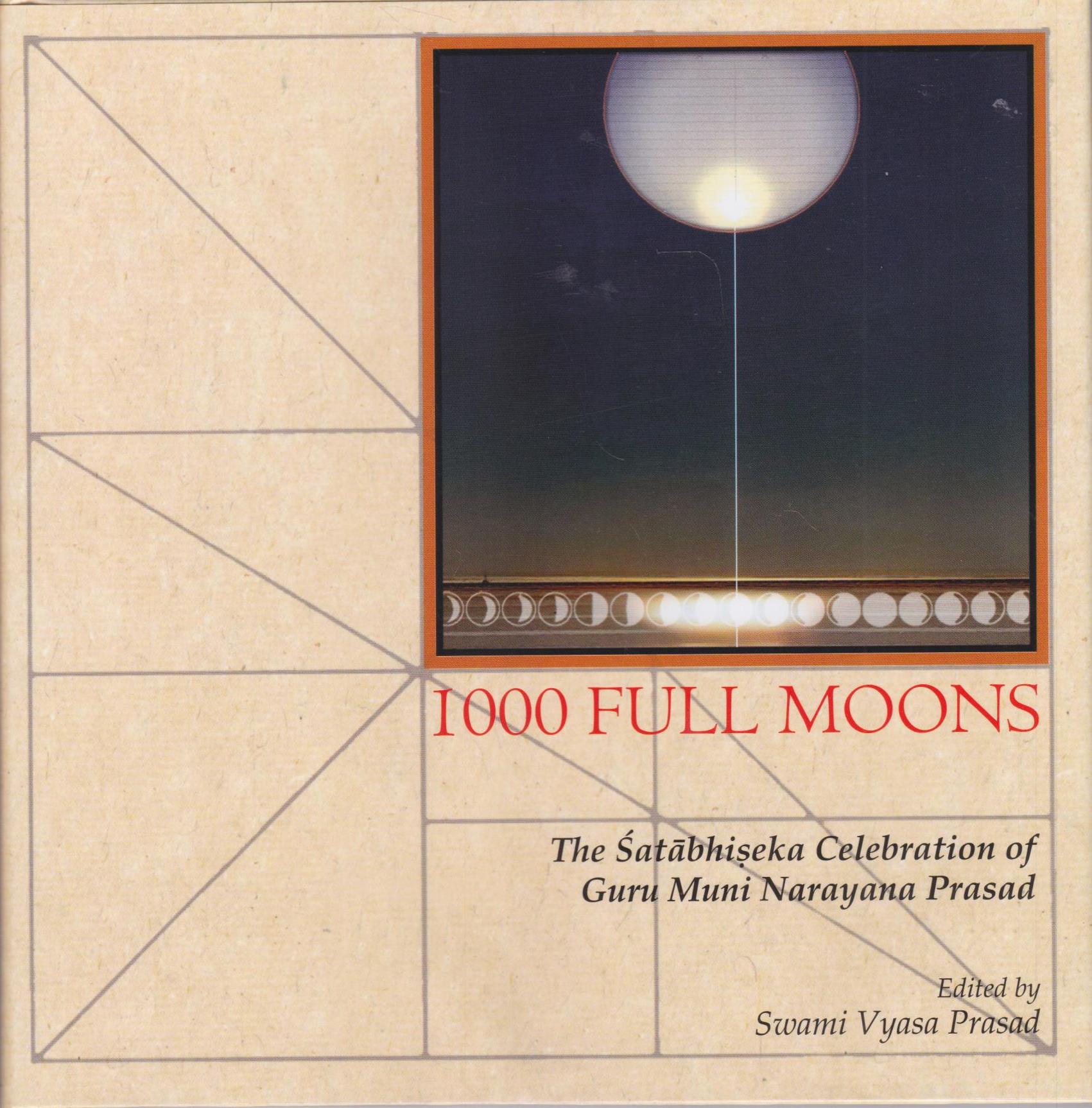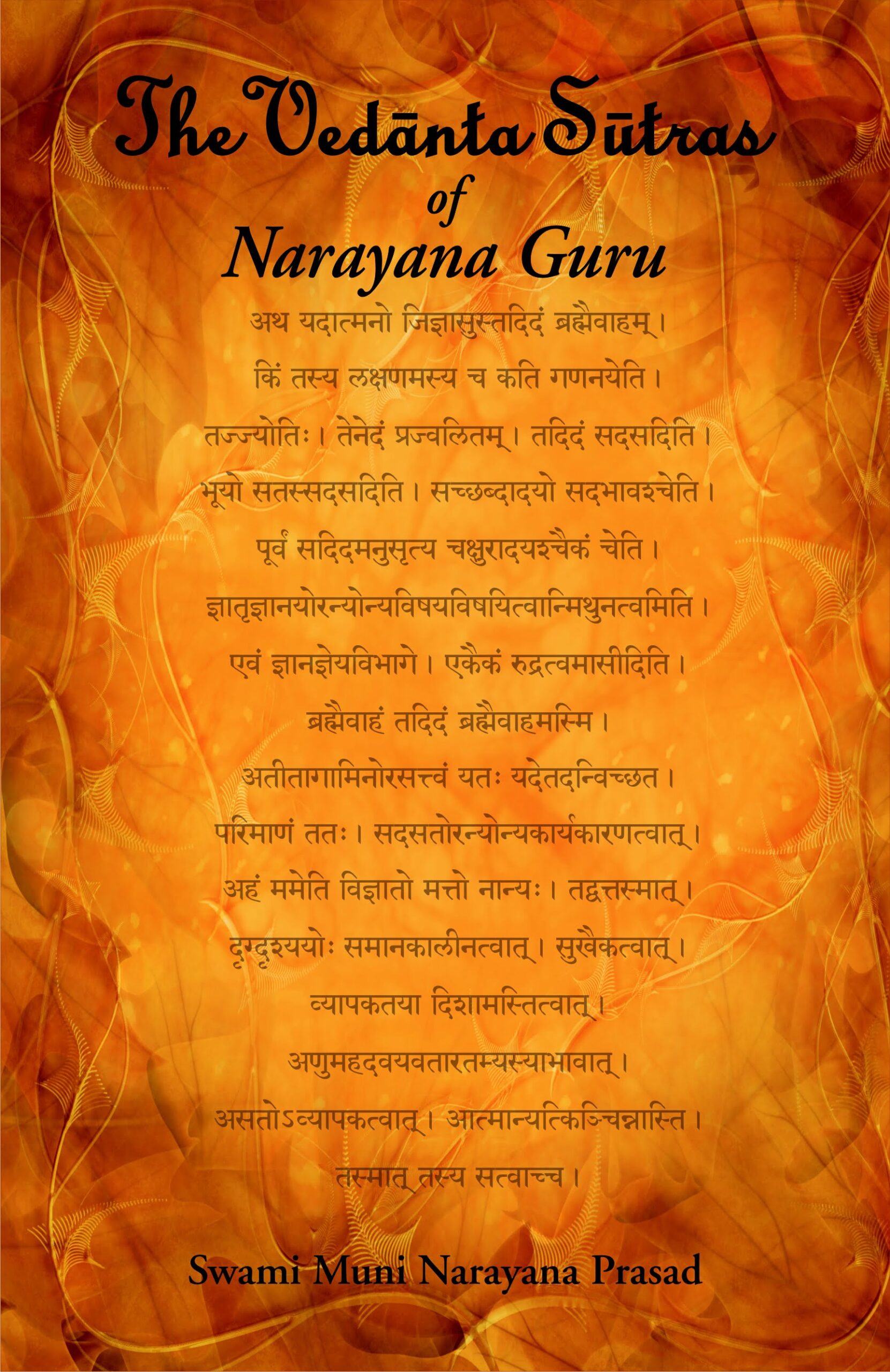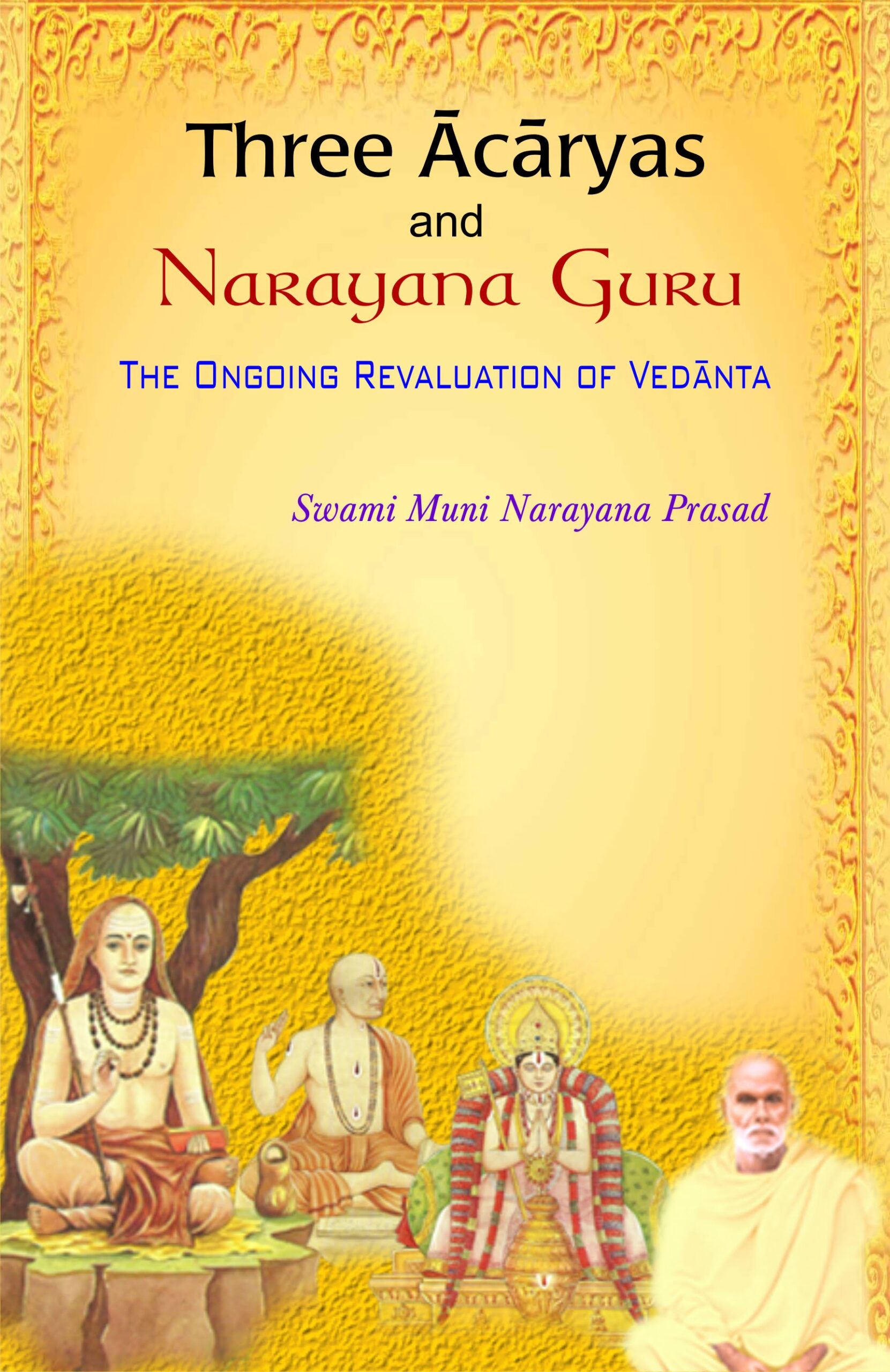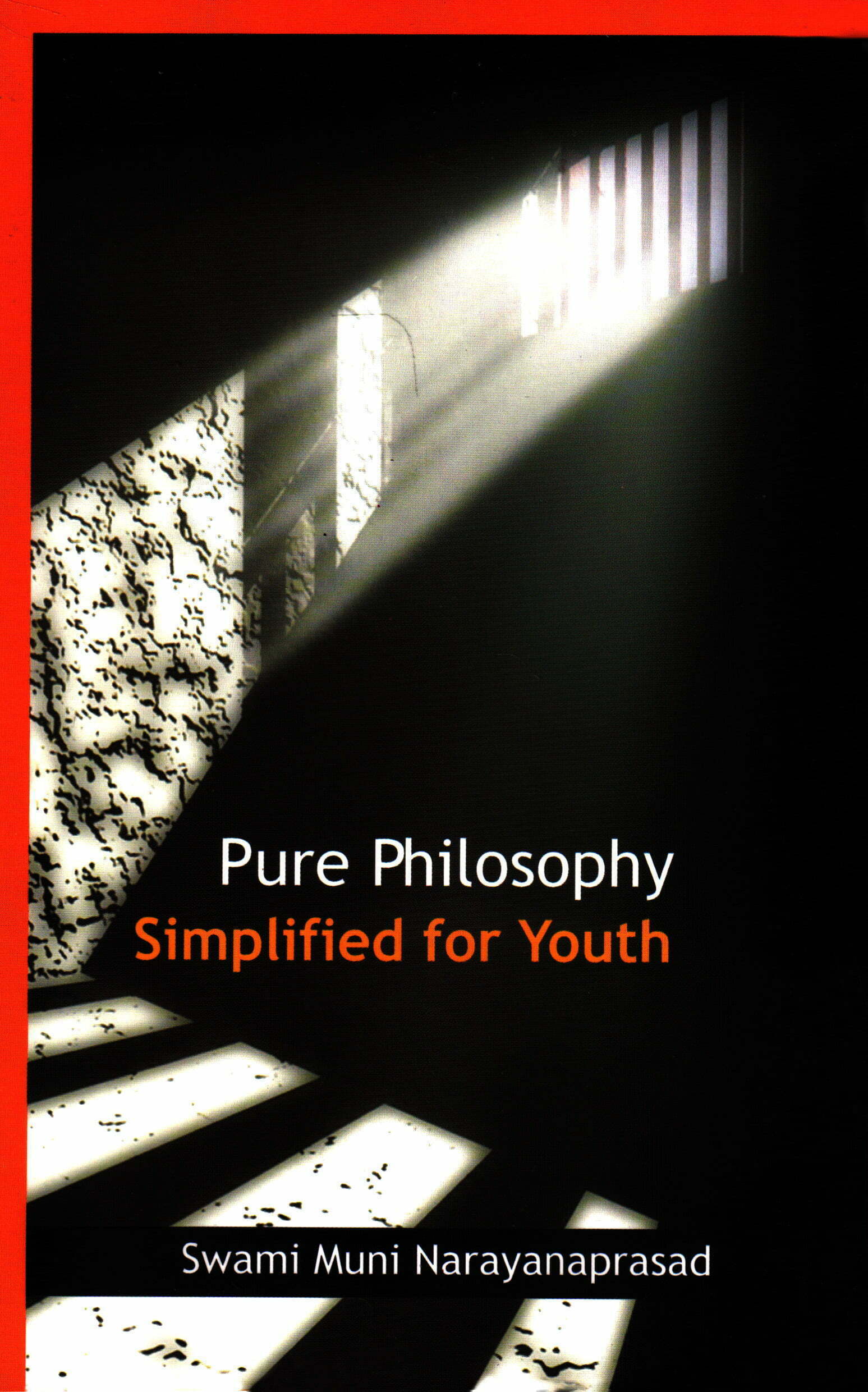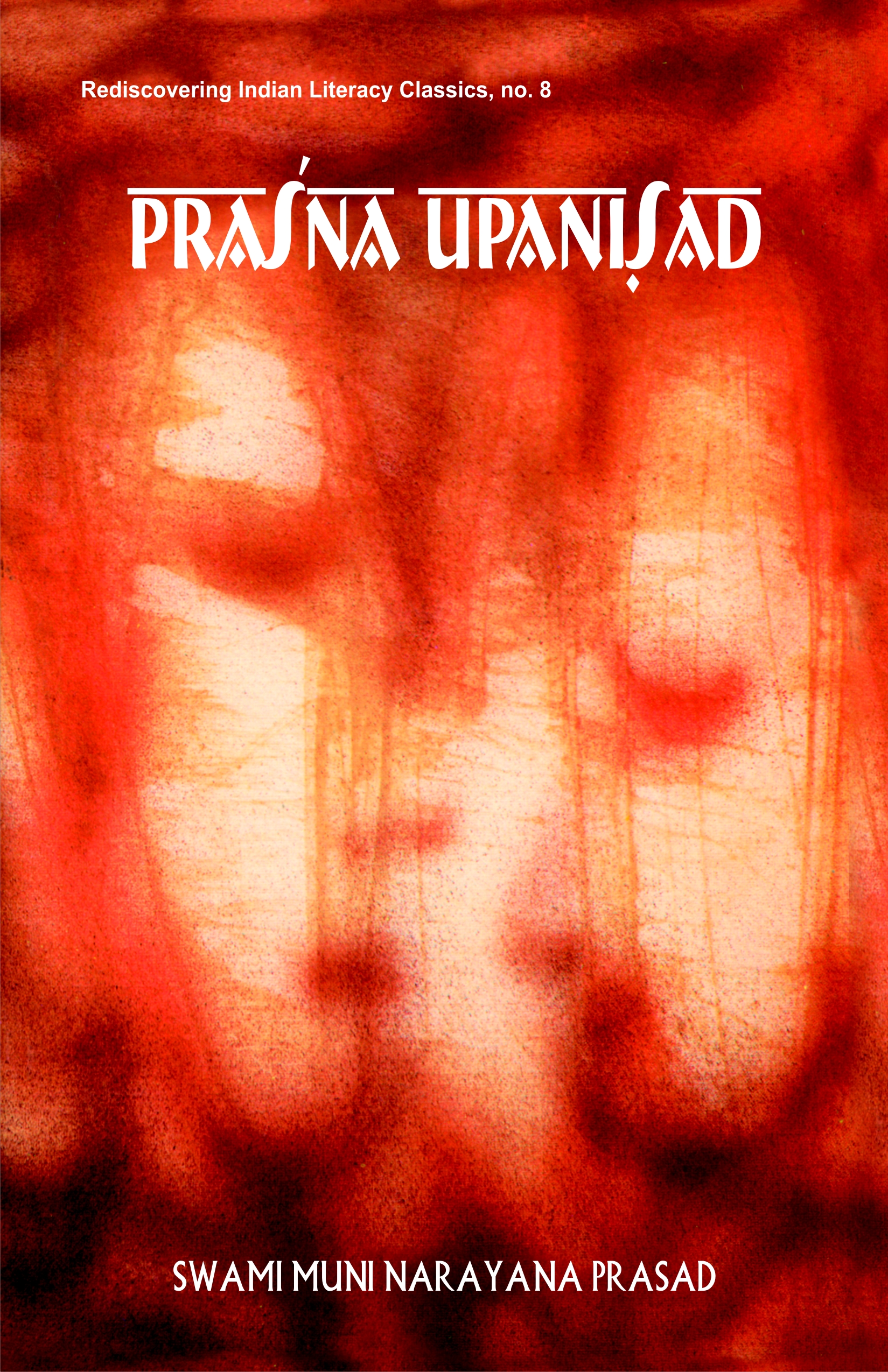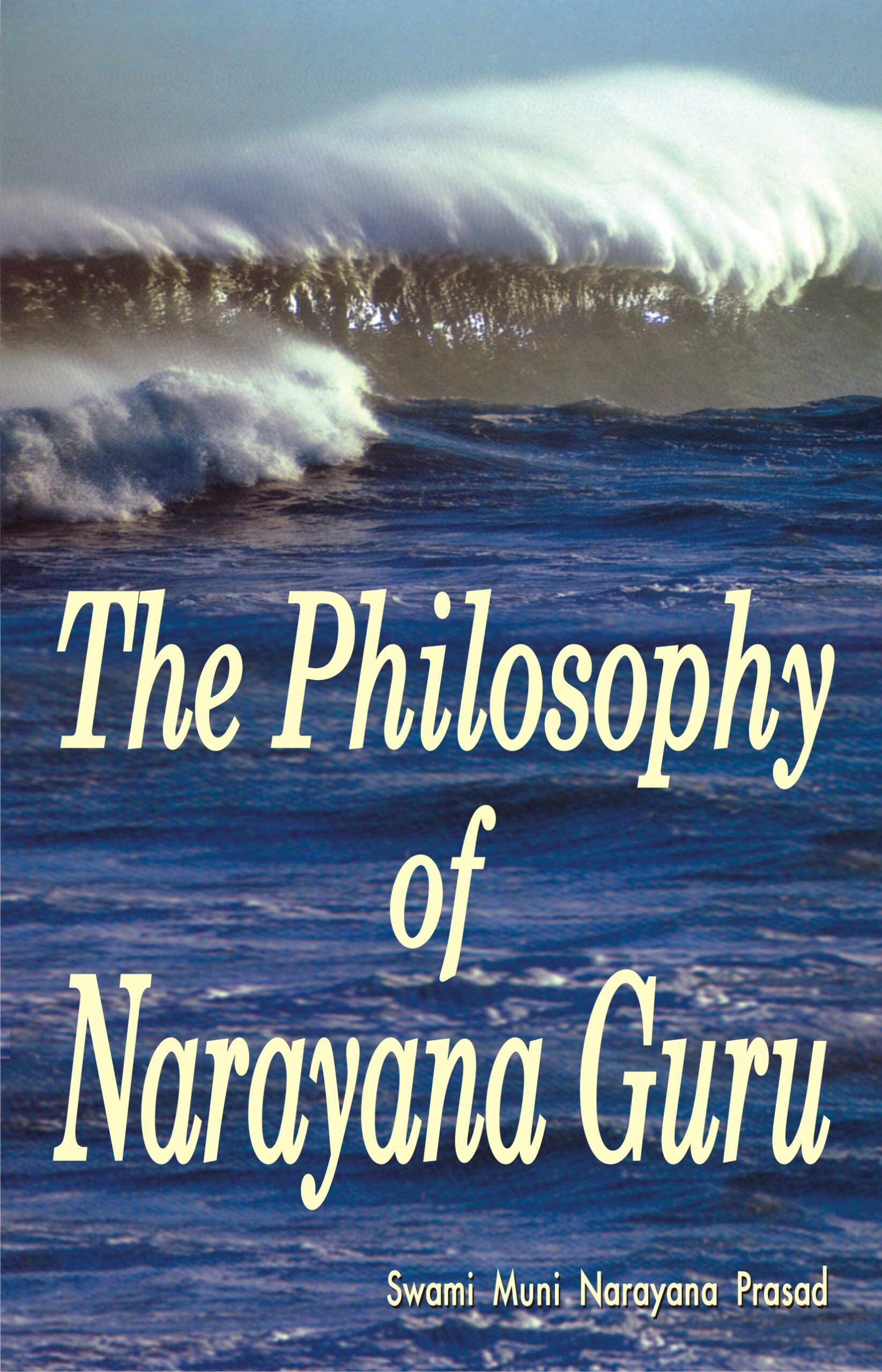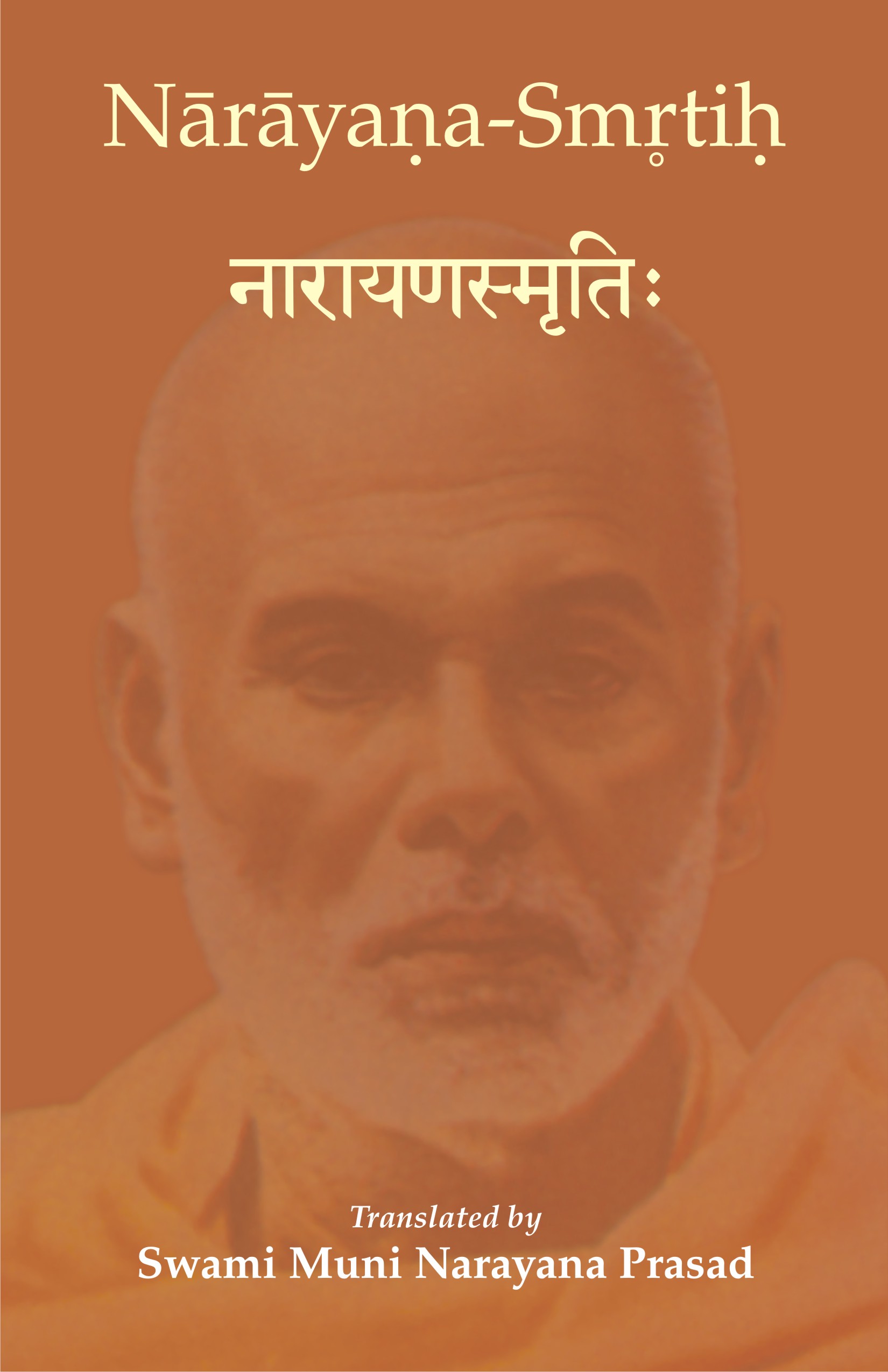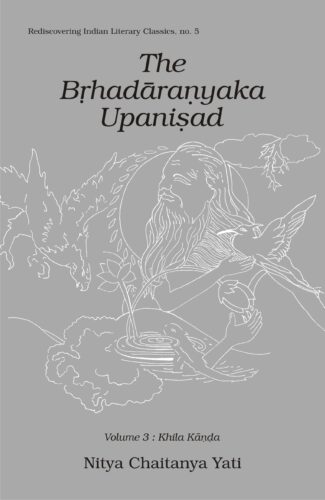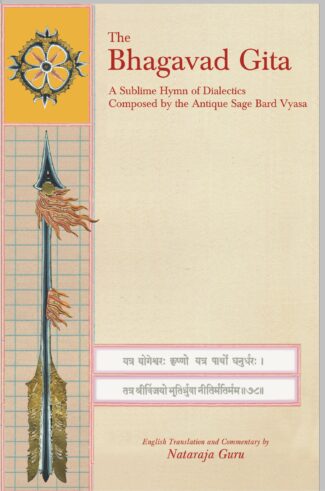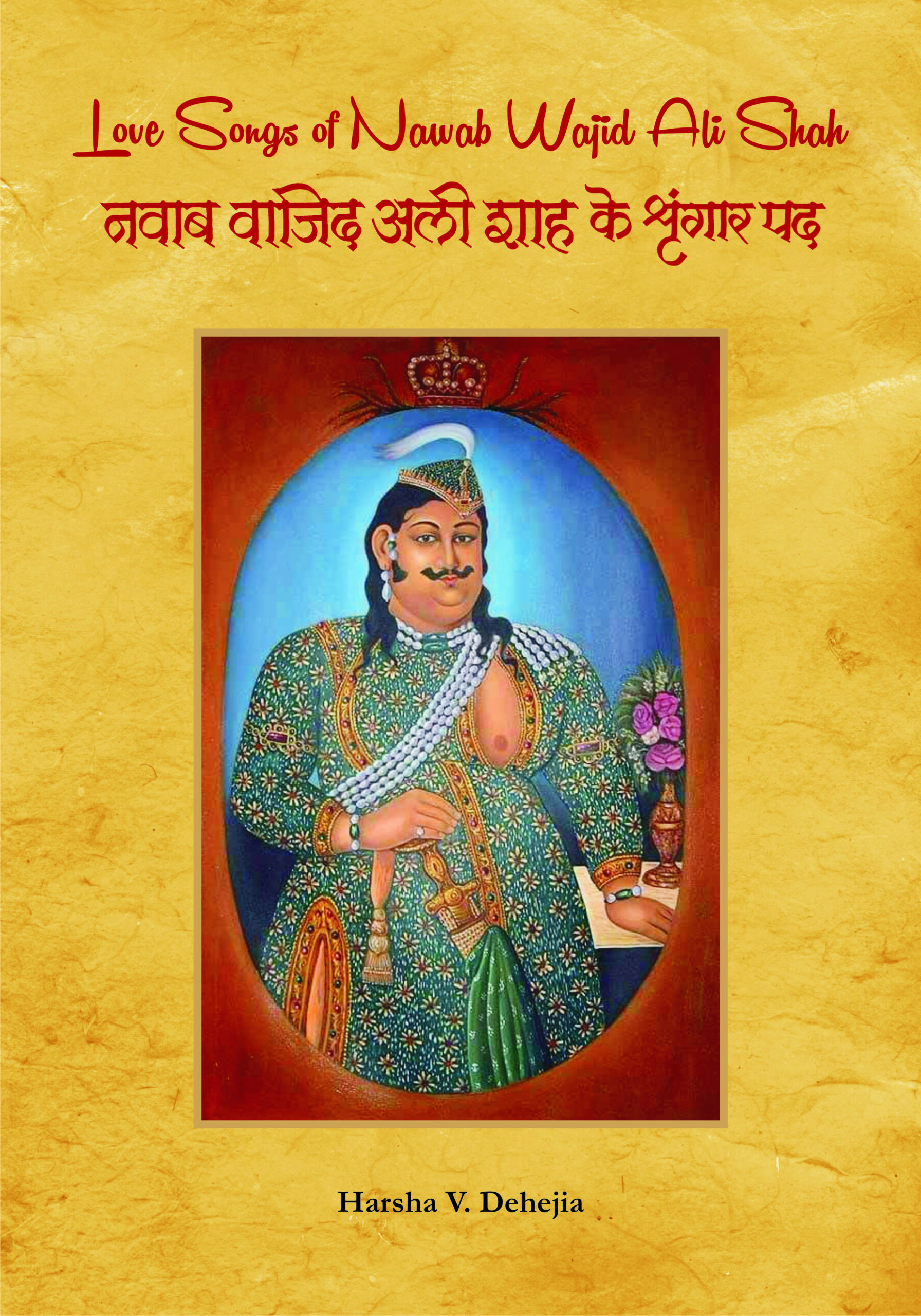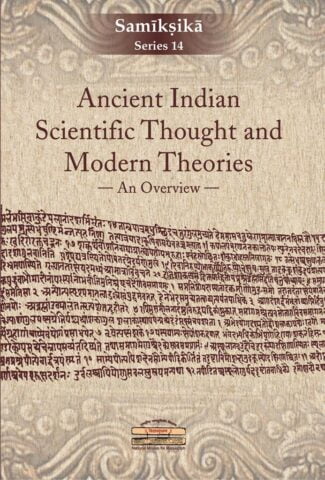-
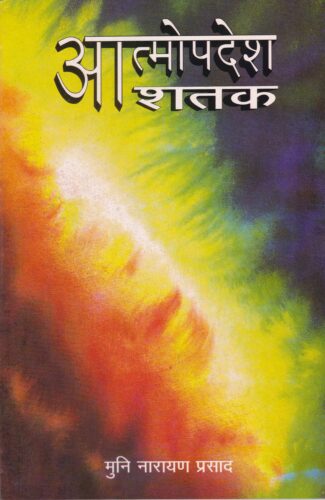
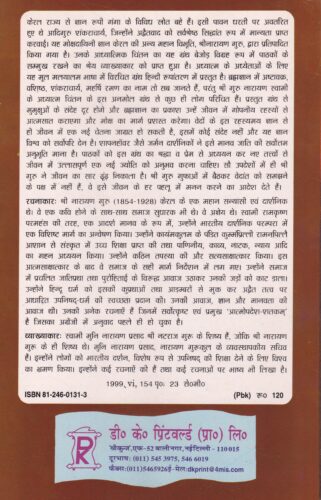
Atmopadesh Satak...
Atmopadesh Satak
One Hundred Verses of Self-Instruction by: Narayana Guru , Swami Muni Narayana PrasadAtmopadesa Sataka, mentioning one single principle, explains that mere virtue of gaining knowledge is not an end in itself. Its usefulness should be seen in the social, religious and veneration realms.
₹120.00 ₹108.00
ISBN: 9788124601310
Year Of Publication: 1999
Edition: 1st
Pages : iv, 156
Language : Hindi
Binding : Paperback
Publisher: D.K. Printworld Pvt. Ltd.
Size: 22 cm.
Weight: 200
Atmopadesa Sataka, mentioning one single principle, explains that mere virtue of gaining knowledge is not an end in itself. Its usefulness should be seen in the social, religious and veneration realms.

-
Sale!Brhadaranyaka Upanisad by: Nitya Chaitanya Yati
₹600.00₹540.00The Brihadaranyaka Upanishad is one of the ten major Upanishads. A dialectical narration that unabashedly stands up to the rational scrutiny of the modern mind, it is directed towards both the individual aspirant caught up in the dark morass of confusion and the philosophic thinker in search of rare pearls of wisdom from humanitys treasury. Guru Nityas matchles commentary will enable the reader to discover the ancient seers timeles insights, to appreciate a fully-developed, integrated system of thought, and, most importantly, to learn to connect with what is real and enduring in his or her own essence. Schematically, the Brihadaranyaka Upanishad a brilliant discourse from the Yajur Veda is set out in three volumes, entitled: Madhu Kanda, Muni Kanda and Khila Kanda. In his planned three-volume thorough-going, meticulously analytical commentary. Guru Nitya distills the wisdom teaching of the Brihadaranyaka Upanishad, drawing on his intimate understanding of the human psyche, as well as both Eastern and Western philosophy, science, art and literature. Dwelling in turn on each of its 435 mantras, its poetic charm, myths, metaphors, images and symbols, Guru Nitya recreates and expands the Upanishadic vision of our own nature, human interaction, and the cosmos, and their relation to the unmoved essence of all. With highly useful appendices and a comprehensive index, the commentary will hold an enduring appeal for both scholars and discerning readers.
-
Sale!Bhagavad Gita by: Nataraja Guru
₹850.00₹765.00Nearing its fiftieth year of being continuously in print, Nataraja Gurus monumental analysis of one of the greatest philosophical classics of Planet Earth is now available in a new edition. Generations have benefited from its unique angle of vision, which introduces a universal framework that does not depend on faith to impart its message of infinite potential for every human being. The Gurus wry humor, fresh insights, and fearless challenges to prevailing orthodoxies, are clear marks of his style. His analysis is radical by any measure, yet it must be noted that much of the scientific and philosophic community has evolved over the same half century toward a similar global, broad-minded outlook to the one which the Guru brings to bear in these pages, and which not coincidentally is advocated by the Bhagavad Gita itself.
-
Sale!Love Songs of Nawab Wajid Ali Shah by: Harsha V. Dehejia
₹795.00₹716.00This impressively illustrated volume brings forth the evergreen spirit of a Muslim ruler of Awadh, Nawab Wajid Ali Shaw (1822-87), in composing love poetry taking a cue from the amorous Krishna leela and assimilating and practising the same in personal life. A trained Kathak dancer himself and a dedicated patron of poetry, painting and performing arts, Wajid Ali Shah immersed in the rasa of dance, music and drama, and got deeply indulged in the many an expression of shringar, while administering the political affairs of his state.
Recalling the different facets of Nawab Wajid Ali’s life, the book explores the state and fame of Lucknow, of his times, where the Nawab lived a life of refinement and pomp, and attracted the best talents in arts and crafts. It also portrays how were dance and music enjoying pride of place during his reign.
While presenting a penetrating account of Ali Shah’s poetry, the book revisits his musical scholarship, history of his times and presents his poems with English translation. It as well showcases the best paintings centring around his personal and cultural life, and guides one go through the religious and cultural harmony prevailed in Awadh where a lot of factors were at play effecting acculturation between the Hindus and the Muslims, popularly known as the Ganga-Jamuni tehzeeb. -
Sale!Brhadaranyaka Upanisad Vol. 1 Madhu Kanda by: Nitya Chaitanya Yati
₹800.00₹720.00The Brihadaranyaka Upanishad is one of the ten major Upanishads. A dialectical narration that unabashedly stands up to the rational scrutiny of the modern mind, it is directed towards both the individual aspirant caught up in the dark morass of confusion and the philosophic thinker in search of rare pearls of wisdom from humanitys treasury. Guru Nityas matchles commentary will enable the reader to discover the ancient seers timeles insights, to appreciate a fully-developed, integrated system of thought, and, most importantly, to learn to connect with what is real and enduring in his or her own essence. Schematically, the Brihadaranyaka Upanishad a brilliant discourse from the Yajur Veda is set out in three volumes, entitled: Madhu Kanda, Muni Kanda and Khila Kanda. In his planned three-volume thorough-going, meticulously analytical commentary. Guru Nitya distills the wisdom teaching of the Brihadaranyaka Upanishad, drawing on his intimate understanding of the human psyche, as well as both Eastern and Western philosophy, science, art and literature. Dwelling in turn on each of its 435 mantras, its poetic charm, myths, metaphors, images and symbols, Guru Nitya recreates and expands the Upanishadic vision of our own nature, human interaction, and the cosmos, and their relation to the unmoved essence of all. With highly useful appendices and a comprehensive index, the commentary will hold an enduring appeal for both scholars and discerning readers.
-
Sale!Ancient Indian Scientific Thought and Modern Theories by: Dhirendranath Banerjee, Sanjit Kumar Sadhukhan,
₹350.00₹315.00The experiences and knowledge from our past are recorded in manuscripts which have been handed down to us over several thousand years. The Government of India, through the Department of Culture, took note of the importance of this vast tangible heritage and, in order to preserve and conserve as well as to make access to this wealth easy, established the National Mission for Manuscripts (NMM). In order to disseminate the knowledge content of manuscripts, the Mission has taken up several programmes such as lectures, seminars and workshops. The Mission has published the proceedings of the above-said programmes under the following series: Samraksika (on conservation), Tattvabodha (comprising lectures based on manuscripts delivered by eminent scholars), Samiksika (research-oriented papers presented in the seminars), Krtibodha (transcribed and edited texts prepared at advanced level manuscriptology workshops conducted by NMM) and Prakasika (publication of rare, unpublished manuscripts).
Ancient Indian Scientific Thought and Modern Theories makes one revisit the development of Indian science and technology in varied fields since the Vedic period, and suggests that we have a living tradition which is vivid and dynamic, inheriting at the same time claiming freedom from the past. It is the proceedings of a three-day seminar held during 25-27 March 2017 in Kolkata, organized by the Sanskrit Sahitya Parishad, Kolkata, and sponsored by NMM. This volume bears testimony to the fact that Indian sages, philosophers and scholars had a grip on all the topics that the modern-day scientists deal with, including complicated surgery and quantum mechanics. Our Vedas, Upanisads and other literary works were the storehouse of scientific wisdom, though the prevailing socio-religious conditions impeded its widespread dissemination.
This volume is expected to invoke keen interest among all who wants to know about a scientific past that Indians inherit, be a scientist or a layman.

